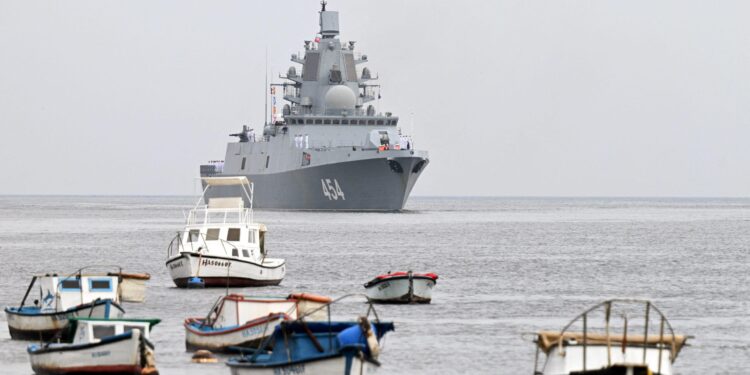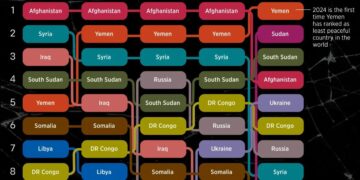Russian Warships Anchor in Bangladeshi Waters for Four Days: Strategic Consequences for India and China
The recent docking of Russian naval vessels in the territorial waters of Bangladesh over a span of four days marks a significant moment in South Asia’s geopolitical chessboard. This event has sparked intense scrutiny regarding its impact on regional security, especially amid escalating rivalries between major powers. Bangladesh’s strategic positioning as a nexus for trade and defense partnerships is increasingly evident, as this naval presence underscores its growing importance. Against the backdrop of intensifying competition between India and China to assert dominance in the region, Russia’s maritime activity signals potential realignments that could reverberate across South Asia. With two global heavyweights closely observing these developments, the implications extend well beyond Bangladesh’s coastline, potentially altering power equations throughout the Indo-Pacific.
Russian Naval Activities in Bangladesh: A New Dimension to Regional Power Equations
The arrival and extended stay of Russian warships within Bangladeshi maritime boundaries have introduced fresh complexities into South Asian strategic affairs. This move appears to be part of Moscow’s broader ambition to cement its influence within the Indian Ocean—a critical arena witnessing heightened great power rivalry. Historically allied with Russia through defense collaborations including joint military drills and arms deals, India now faces nuanced challenges as it contemplates how this enhanced Russian presence might affect its own maritime security interests.
Bangladesh’s role gains prominence here; hosting Russian naval assets elevates Dhaka’s bargaining power vis-à-vis neighboring giants while complicating New Delhi’s traditional sphere of influence over Bay of Bengal waters.
Simultaneously, China is poised to interpret Russia’s engagement with Bangladesh as an opening to deepen its footprint along vital sea lanes integral to its Belt and Road Initiative (BRI). Beijing may leverage this development by fostering closer military cooperation with Dhaka—potentially creating a trilateral dynamic involving China-Russia-Bangladesh that challenges India’s regional primacy. The evolving scenario demands careful diplomatic calibration from all parties involved given the intricate balance at stake.
| Main Actors | Strategic Objectives | ||
|---|---|---|---|
| Russia | Expand naval reach; reinforce alliances in Indian Ocean region | ||
| India | Sustain regional leadership; safeguard key maritime corridors | ||
| China | BROaden influence via BRI; enhance defense partnerships with neighbors | ||
| Strengthen security ties; attract foreign investment & strategic support< / td > < / tr > < / tbody > < / table > India and China Respond: Maneuvering Through Complex Geopolitical CurrentsThe stationing of Russian warships near Bangladeshi shores has elicited distinct reactions from India and China—two pivotal players whose interests intersect yet often diverge sharply across South Asia. For India, this development raises alarms about potential shifts in military alignments that could undermine New Delhi’s longstanding dominance over Bay of Bengal security affairs. Key apprehensions include:
Conversely, China’s perspective frames this occurrence as an advantageous moment to consolidate ties not only with Russia but also with Bangladesh itself—thereby reinforcing Beijing’s strategic depth within South Asia. Analysts suggest Chinese policymakers might pursue:
This interplay highlights how both countries are recalibrating their approaches amid shifting alliances while vying for greater sway over critical waterways. Enhancing Indo-Chinese Collaboration Amid Evolving Maritime Realities: Strategic RecommendationsGiven these unfolding dynamics marked by heightened tensions yet interdependence between India and China, fostering cooperative mechanisms becomes imperative for sustainable peace and prosperity across South Asia. A comprehensive approach should encompass:
|














